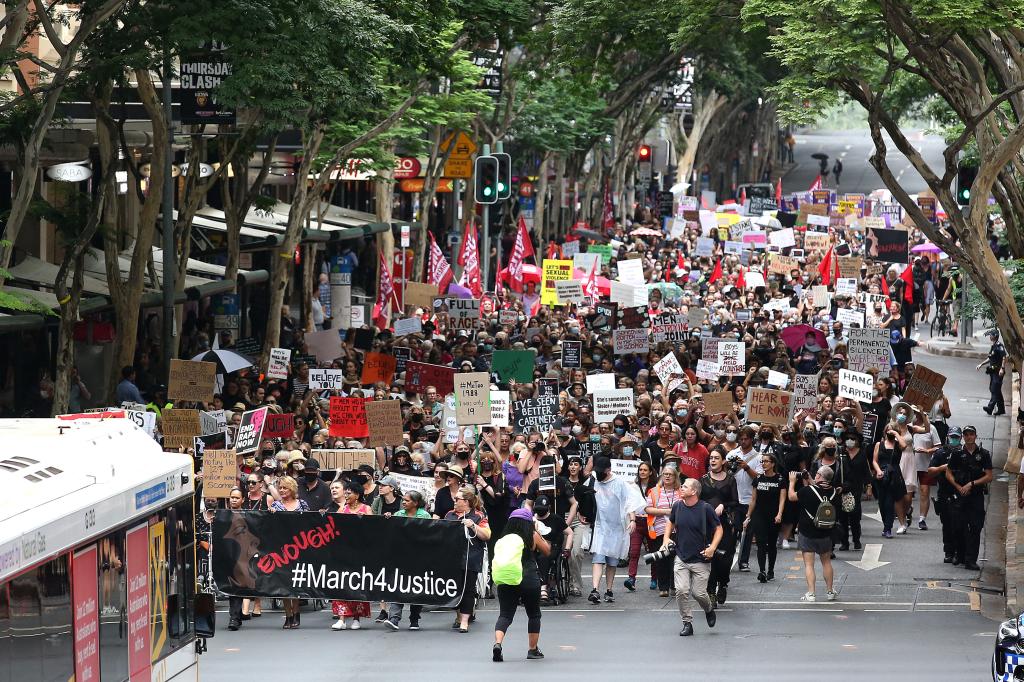CONTENT WARNING: This article addresses the serious issues of sexual harassment and abuse.
A recent study focusing on the Asia-Pacific region has unveiled disturbing trends regarding the sexism and violence faced by women in the political sphere. Alarmingly, over 50% of reported sexual harassment incidents occurred within parliamentary settings.
This significant research conducted by the Inter-Parliamentary Union (IPU) surveyed 150 female members of parliament and staff from 33 countries, including Australia, China, India, Malaysia, Thailand, and New Zealand. The findings were published on a Tuesday, revealing that 60% of female parliamentarians reported being targets of hate speech, disinformation, image-based abuse, or doxing—representing the highest incident rate recorded by the IPU to date.
The study also highlighted the pervasive violence experienced by these women. One in four female parliamentarians reported facing sexual violence, while an equivalent number indicated suffering financial theft or damage to their personal belongings.
IPU Secretary General Martin Chungong described these attacks as “a direct assault on democracy,” stressing that parliaments should serve as safe havens for healthy discourse and regulatory processes. He remarked that it is imperative to cultivate an environment where women can flourish free from the threat of violence.
Similarly, Siti Rozaimeriyanty Dato Haji Abdul Rahman, Secretary General of the ASEAN Inter-Parliamentary Assembly (AIPA), emphasized that violence against women in politics remains a significant barrier. She called for proactive strategies from political institutions to create a supportive environment for women to operate without fear.
‘I can touch you, can’t I?’
The study reveals harrowing accounts from anonymous interviews of women in politics, exposing their deeply troubling experiences.
One parliamentarian shared that a male colleague referred to her as a “beauty queen” while she was discussing financial matters, while another recounted receiving online comments about her physical appearance. In some instances, threats of violence were made, such as a colleague who shouted at a woman and threatened to harm another.
Many testimonies revealed instances of inappropriate sexual comments, unwanted advances, and physical interaction that left women feeling uneasy. One staff member recounted an experience where a superior attempted to lure her into his hotel room during a training session, making her feel uncomfortable and unsafe.

One participant expressed that even as a newcomer to politics at 26, she faced harassment with comments such as, “If you show me your underwear, I’ll vote for you.” There are significant disparities noted in the study, with particular groups like younger women, minority women, and unmarried women experiencing higher rates of violence.
Participants reported physical assaults with 8% acknowledging they had been slapped, pushed, or hit. Instances of spitting and insult were also noted, demonstrating the extent of the aggression not only faced verbally but also physically.
Despite the prevalence of these incidents, an astonishing 96% of surveyed female parliamentarians did not report the sexist behavior they encountered, a rate significantly higher than those in European and African parliaments. Furthermore, only 5% of those sexually harassed reported their experience to parliamentary authorities. The trend continued with merely 10% of women choosing to disclose such experiences to their supervisors, particularly when the supervisory role was held by a woman.

Positive Steps to Empower Women in Politics
Though the statistics paint a grim picture, the study identifies significant strides taken by some parliaments within the Asia-Pacific region, including Australia, Fiji, India, and Thailand. These initiatives have introduced confidential reporting systems and support mechanisms.
Brigitte Filion, the lead author of the report, emphasized the need for more legislation to combat violence against women in politics, asserting that the issue extends beyond parliamentarians to include journalists and women advocates who face harassment.
Australia has begun to embrace meaningful changes following Kate Jenkins’ review, aiming to enhance reporting systems and addressing cases of abuse within parliament. According to World Bank data, of the 37 countries surveyed in the region, 16 have existing laws addressing workplace sexual harassment.
Key recommendations from the study include establishing internal policies or codes of conduct against harassment and gender-based violence, implementing awareness initiatives and training, and ensuring access to counseling and support services.


